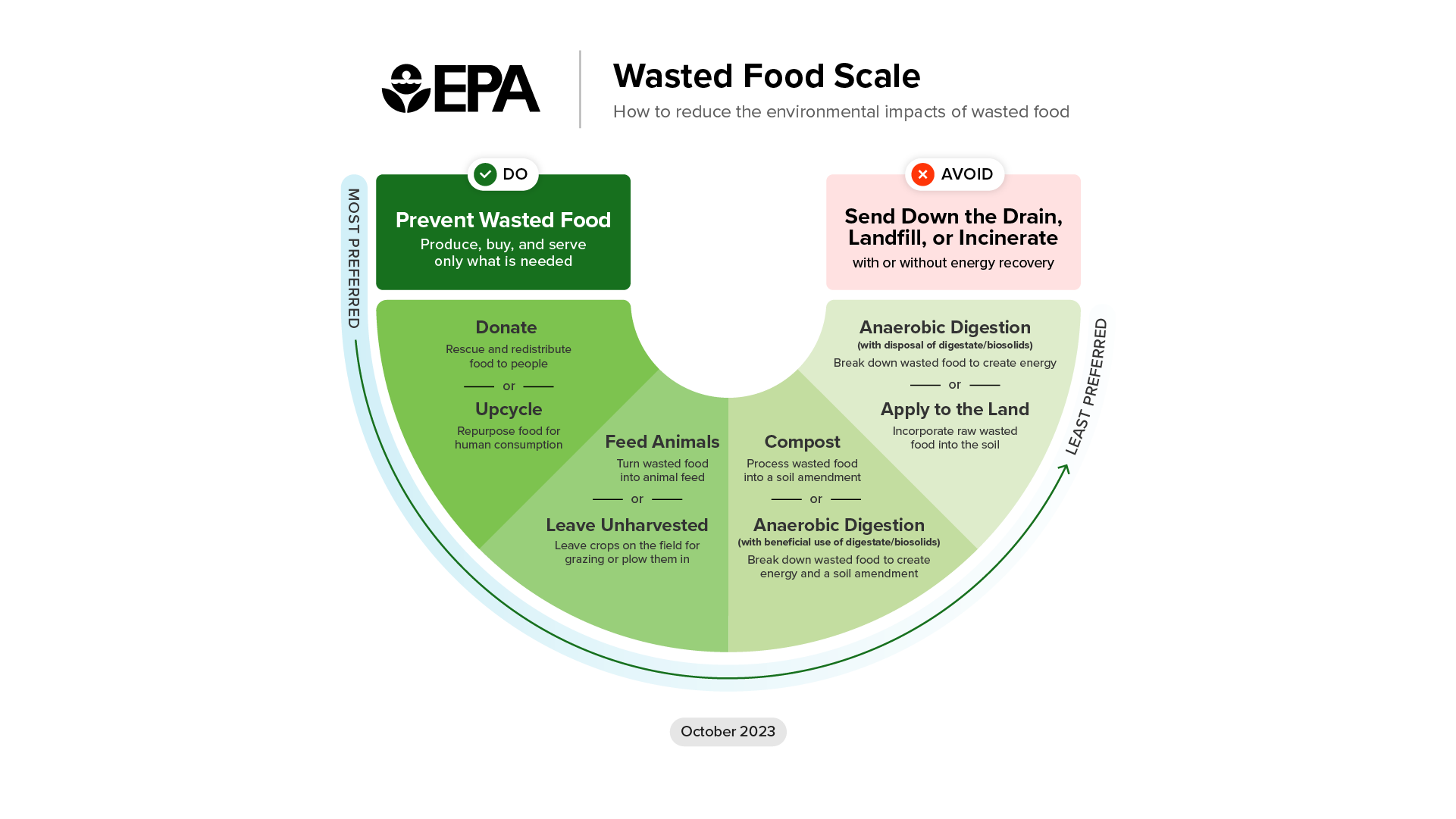Expanding Maine’s Wasted Food Solutions: A Collaborative Effort by CET
CET is excited to help Maine stakeholders move forward on wasted food reduction and diversion.
We help Exeter Agri-Energy source feedstock material for its de-packaging and anaerobic digestion facility.
CET has also been commissioned to study wasted food and found many opportunities in the state to jumpstart the wasted food marketplace.
To learn more about CET’s work in Maine and to get involved, contact CET today at 888-813-8552 or e-mail wastedfood@cetonline.org.
Resources for Sharing and Action
- Sustainable Partners: Access curated information to share on your social media, newsletters, or editorial content about the Wasted Food Assistance program.
- Toolkit: Explore practical tools and guides to support your efforts in reducing wasted food.
Wasted Food Resources for Businesses · Maine
Below are external resources curated by waste reduction specialists and partner organizations. CET is a partner to aid your journey in combating wasted food.
- Resources for Food Recovery in Maine
- The University of Maine’s Senator George J. Mitchell Center for Sustainability Solutions provides a range of resources on composting, donating surplus food, reducing food waste, and gleaning programs.
- Guide to Recovering and Composting Organics in Maine
- The Maine Department of Environmental Protection provides information, resources, and guidance on composting in Maine.
- Composting Facilities in Maine
- The Maine Department of Environmental Protection (MaineDEP) has application forms and annual reports on composting facilities.
- Food Waste Recycling Pilot Program
- A program by the non-profit organization ecomaine to build wasted food recycling capacity in southern Maine.
- Food Date Labeling Act
- U.S. Senator Richard Blumenthal (D-CT) and Congresswoman Chellie Pingree (D-ME) introduced this act, which supports standardizing food date labeling to reduce confusion and simplify regulatory compliance.
EPA Wasted Food Scale
CET utilizes the EPA’s Wasted Food Scale as a guiding tool to assist businesses, including restaurants, universities, colleges, event organizers, supermarkets, churches, etc. Discover relevant and partner resources on how to reduce the environmental impact of wasted food in your business across the scale
